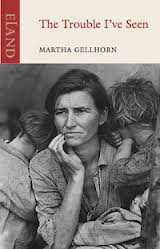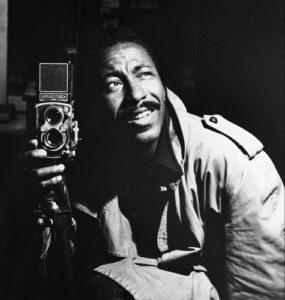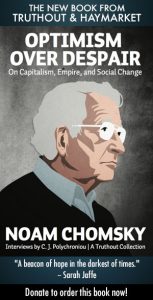Martha Gellhorn ~ A Furious Footnote In History
In a man’s world she was one of the few women. Whereas her fellow journalists reported the war as if keeping score, she concentrated on the reality behind the statistics. She reported the Spanish Civil War, the Second World War, Vietnam and Panama. What is it that drives her to these hotbeds ? An interview (conducted in 1991) with an angry old lady.
In 1983, and far into her seventies, Martha Gellhorn can contain her anger no longer. This time the destinations are Nicaragua and El Salvador. She still shudder at the memory.
‘In Central-America was the first time I’ve ever felt real fear. You couldn’t see or hear the danger approaching. Suddenly it was there.’ Back at home England’s Granta publishes a report of hers on an instance of torture. Described in minute detail from the victim’s own account, smuggled out to her under the greatest secrecy – via the Red Cross – by a representative of a human rights organization in San Salvador.
‘There are murders committed every day in El Salvador and it’s costing the American taxpayer enormous sums of money, for no reason. We support these murderers. This has to be stopped.’
Her war coverage, collected in the book The Face of War, and her own choice of her peacetime writings The View from the Ground, are the distillations of sixty years of anger and indignation at the state of affairs in the world in general and in her native United States in particular.
‘The reason I’ve been able to travel all over the world and talk to anybody I want, is that I appear to be harmless, unimportant. I don’t make notes, it’s just like talking to a stranger in the street. If you have a photographer with you or take notes, people notice straight away. They become aware of the situation and tense up, they become cautious, less natural. And, in any case, I wasn’t important enough to have a photographer along.’
In the television film Hemingway Martha Gellhorn is presented as a fanatical, blonde and ambitious journalist. Fanatical she has never been, blonde she has and if it’s ambitious to want to be heard, than she is ambitious. Before she met Hemingway, on holiday in Florida, she had already written a book about unemployment in America in the thirties, entitled The Trouble I’ve Seen. Later she published short stories, ten novels and account of the travels: Travels with Myself and Another.
She married Hemingway in 1940, but the marriage wasn’t to survive the Second World War.
‘I was married to that terrible man for four of five years and am punished daily for that. I don’t want to see his name in your article’, she decrees with a determined look in her eyes. At eighty-one Gellhorn still shows traces of being the beauty to whom Hemingway dedicated For Whom the Bell Tolls.
In the Spring of last year (1990) Bill Buford, Editor-in-Chief of Granta receives a telephone call from Martha Gellhorn. This time it’s Panama. Her report is rife with distrust of the official American version of events. Distrust also of the American and Panamanian authorities. Five thousand words, one for each of the estimated number of dead. The number of injured is unknown. ‘They remain unseen. The Panamanian authorities have admitted that in one night fifteen thousand families were made homeless.’
The invasion of Panama was given the code-name Just Cause. Gellhorn laughs scornfully. ‘They’re so inexperienced, the Americans, they don’t realize how incompetent they are, how clumsily they handled the military operation in Panama. All you hear is that our boys are wonderful, there were only twenty-two American casualties, and that was because they ended up shooting at each other. No, it was a great success, our boys have come home and the news disappears from the front pages within three days. Nobody’s interested anymore.’
According to Gellhorn, her article, The Invasion of Panama, is the only one that speaks clearly and decisively of the unnecessary damage done and the enormous cruelty perpetrated by the Americans. ‘There’s no criticism any more in America. With even the best of intentions there’s no way that I can describe the reporting there as journalism, it’s more like a kind of advertising campaign. What they call ‘investigative journalists’ nowadays – people who run back and forth asking the right people the right questions – have either died or can’t find a publisher. I don’t have a regular spot in any publication in the United States either.’
‘There’s no possibility of getting such a large number of words into print in the English speaking world anywhere other than Granta. It used to be possible in the Atlantic in America but that’s gone to hell, I don’t even know whether Harper’s still exists. In the whole of the United States there’s nothing other than the New York Review of Books, which helps support Granta and takes the occasional article. Or the New Yorker. That’s the critical voice. A wonderful magazine, the New Yorker. But they’ll never publish anything of mine because they write ‘cold’ there. I can’t do that, I’m not a New Yorker journalist.’ She doesn’t have any explanation for the lack of critical journalism. ‘It’s probably a result of the Reagan era. That spread a thick layer of glue over everybody’s brain.’
It’s three in the afternoon and Martha Gellhorn pours whiskey. The writer had lived in Wales, twenty-five kilometers from the outside world, for more than twenty years now, but our conversation takes place in her pied-a-terre in London.
‘Luckily they don’t deliver the newspaper in Wales. Imagine me getting a newspaper every day and seeing what they’re up to, in detail, I’d probably go mad with rage. What I get from Newsweek makes me angry enough already.’
The paradox in her life is that she searches for peace and tranquility yet cannot resist the temptation to take off to the world’s worst hotbeds, at every opportunity. From the Spanish Civil War to the invasion of Panama. Lifelong freelance war-correspondent, against her better judgment. ‘I find it abnormal that I still get so agitated. You should have stopped with all that at my age, surely?’
In 1938 Gellhorn is in Czechoslovakia, she can no longer remember what she was doing there exactly, ‘probably writing and trying to hold off the war’. The day after the Munich Agreement was signed, whereby, in effect, Czechoslovakia was handed over to Hitler, she stormed into the American Embassy in Prague. A new American diplomat, George Kennan, had arrived there three or four days earlier. In his memoires he describes her as ‘an attractive young lady wearing a collegiate American fur coat and tossing, in her indignation, a most magnificent head of golden hair.’ It’s true that she was furious. ‘Why aren’t you doing anything?’, she demanded of him. Huge numbers of Czechs were fleeing from the Germans as they invaded the Sudetenland. ‘Go to hell!’, she shouted at him as she left the office, having achieved nothing. At the railway station she witnessed the panic: ‘In his memoires he represents me as some kind of raving lunatic, chasing madly around after false passports. But, in Prague, I saw people throwing themselves in front of trains in desperation.’
‘I serve as a kind of footnote in that book. I am too, a footnote in history.’
A year later, in December 1939, she arrives in Helsinki. It turns out to be the day before the Russians invade Finland. She writes: ‘The war had come too fast and all the faces and all the eyes looked stunned and unbelieving.’ Coldly she writes down what she sees: ‘Close to a big filling station a bus lay on its side, already burned out, and beside it in the street was the first dead man I saw in this war.’
Previously, in 1934, she had visited Germany and had met a number of young national-socialists. The encounter was not without consequence. ‘I was no longer a pacifist, I had become an anti-fascist.’ Back in America she started preparations for her journey to Europe. She meets Hemingway in Key West, Florida, and a relationship begins. She shares not only a passion for swimming, writing and travel with him, but also indignation about the Spanish Civil War and the attitude of the rest of Europe.
Hemingway persuades Gellhorn to write. The editor of the magazine Collier’s, Charles Colebaugh, gives her her assignment: Spain. There, for the first time in her life, she comes face to face with war. ‘I felt then (and still do) that the Western democracies had two commanding obligations: they must save their honour by assisting a young, attacked fellow democracy, and they must save their skin, by fighting Hitler and Mussolini, at once, in Spain, instead of waiting till later when the cost in human suffering would be unimaginably greater. Arguments were useless during the Spanish War and ever after; the carefully fostered prejudice against the Republic of Spain remains impervious to time and facts.’
In contrast with her male counterparts, who work mostly for newspapers, she is in the fortunate position of being able to take her time. ‘Most of the men wrote a kind of sports report, like: “we took such-and-such mountain top, peak 442, and lost this-or-that area.”. That what the newspapers wanted to hear, and so that’s why they concentrated so much on the precise details, troop movements and that kind of thing. That didn’t interest me.’
‘I wrote very fast, as I had to; and I was always afraid that I would forget the exact sound, smell, words, gestures which were special to this moment and this place.’
Hemingway’s style influences her language, such as the brusque first sentences. ‘At first the shells went over; you could hear the thud as they left the Fascist’s guns, a sort of groaning cough; then you heard them fluttering toward you.’ Or: ‘At the end of the day the wind swooped down from the mountains into Madrid and blew the broken glass from the windows of the shelled houses.’ And: ‘In Barcelona, it was perfect bombing weather.’
It’s this kind of keen observation and eye for detail that typify her reports about Spain. Like the one about a major who shows her a rocket containing propaganda material saying: ‘… and sometimes I write an answer and we send them back. It is quite a discussion.’ The longer it goes on, the grimmer her reports become, and she herself the more desperate. But she is never afraid. As she says in the last sentence of her last report from Spain, ‘How can I explain that you feel safe at this war, knowing that the people around you are good people.’
During the Spanish Civil War she gets to know the legendary photographer Robert Capa. ‘I was crazy about Capa, he was so brave. As a writer you’re far less exposed to danger. There were no telephoto lenses in those days, you had to go right up to the subject. The photographers were defenseless, immediately recognizable to everybody.’ They travelled together a great deal and it was Capa who convinced her in her decision to divorce Hemmingway.
The suggestion that the risks the photographer used to take are comparable to those taken by the cameraman nowadays invokes a burst of anger from her. ‘Here I see how the media reacted to the Gulf Crisis and find it disgusting, sickening. It’s vanity, conceit , self-importance. It disgusts me. Even the bravest, like Capa in the Spanish Civil War, didn’t show off their bravery. They are there of their own free will and the others are there because they have no choice, they have to be there. From the soldiers to the civilians. That’s why nowadays the position of the war-correspondent is such a privilege. It’s dangerous as you want it to be. It’s up to you. It’s not your job to be seen, it’s your job to see and to pass it on.’
To the question of why Roosevelt didn’t show any interest in the fate of the Republicans in Spain, Gellhorn reacts irritatedly: ‘Their hearts were in the right place. Both of them, Franklin and his wife Eleanor, were on the side of the Republicans in Spain. He did explain once how it was that he couldn’t do anything: because of the Catholic vote in America. The American Catholics were convinced that all the nuns in Spain were raped every day by the Republicans, and that the Republicans were hard line communists. Don’t forget, in those days American politics were isolationist. First and foremost Roosevelt was a politician.’
‘I also tried to arrange grain export to Spain, he felt for that too and sent me to see Cordell Hull, who was Secretary of State at the time. In the end they didn’t dare to do it, though personally they were in favour. The Catholic church in America was very powerful and well organized. On top of that there was that permanent fear of the ‘Red Peril’. The ‘red scare’ in America began about the day after the Russian Revolution’.
Eventually Franco achieves victory. As she says in The Face of War, ‘All of us who believed in the Causa of the Republic will mourn the Republic’s defeat and the death of it’s defenders, forever, and will continue to love the land of Spain and the beautiful people, who are among the noblest and unluckiest on Earth.’ During a visit to Spain in 1960 she decides never to return there. Until she hears, on the radio news, of the death of ‘that detestable tyrant’ on the morning of 20th November 1975. She boards an aeroplane the very same afternoon. ‘It was like coming home.’
 After the publication of her first book, The Trouble I’ve Seen, she reports to Harry Hopkins, a friend of Roosevelt’s and head of the FERA (Federal Emergency Relief Administration), an organization created under the New Deal measures instigated by President Roosevelt. For a whole year she travels about the country writing report after report on the conditions lived in by the unemployed of the time – the thirties – in America.
After the publication of her first book, The Trouble I’ve Seen, she reports to Harry Hopkins, a friend of Roosevelt’s and head of the FERA (Federal Emergency Relief Administration), an organization created under the New Deal measures instigated by President Roosevelt. For a whole year she travels about the country writing report after report on the conditions lived in by the unemployed of the time – the thirties – in America.
A few of them appear in The View from the Ground under the title Dear Mr. Hopkins. After a year’s travel she steps into Hopkins’ office indignant about the poor treatment of the ‘have-nots’. He advises her to go and speak to the Roosevelts. ‘She, Eleanor, was a infallible compass, never deviating from her moral standpoint. She always got things just right. She came from a good background and had a perfectly humane attitude towards people who needed help. He was an extremely charming man, witty, and at the same time a wonderfully practical politician. He was a pragmatist, she wasn’t.’
At the hands of the FBI Gellhorn loses her job at the FERA, but the president rings her up to offer the White House as a temporary residence. ‘The press continually attacked the Roosevelts personally, publicly and politically. The press then was controlled by the Republicans, just as it is nowadays. That still has a certain amount of influence on reporting, to the extent that I think it would be quite difficult to get an article published that was critical of Eisenhower, not that I want to write one, but still.’
‘Nowadays the presidency is sacrosanct, the White House a holy place. Not in those days. This grandeur nowadays, they weren’t like that at all. Just imagine, Mrs. Roosevelt even drove herself around in a little car to do her shopping. When I lived there, my friends used to come round and visit me, they’d just walk right in.’
The presidents that occupied the White House after Roosevelt she calls ‘cheap proles’. Laughing: ‘The Roosevelts had always lived in large houses, they were used to it.’
Her friendship with Franklin and Eleanor Roosevelt helped protect her against the terror of the McCarthy era, of that she is convinced. ‘An American communist was about as dangerous as a newborn lamb. I don’t think that I was really on the blacklist. I was living in Italy with my adopted son at the time. I was accused of heading a communist cell from Portugal.’
‘The terminology “left and right” is nonsense. Are you left if you’re concerned about the welfare of the homeless, the unemployed, and if it bothers you when institutions are closed down and the patients turned out onto the street? I’d say those sensibilities are what make you human. It’s as though being at all concerned for the less fortunate in society means you’re left. Until recently it meant that you were an communist, in America. In that case I definitely am a communist because these things do bother me. What you’re actually saying is that communists are the only good, caring people in existence. Being right means that to you the only thing that matters is money, a market economy, and tough luck to those who don’t make it. So, it’s just another word for stupid.’
‘Liberal democracy is as much of a joke, too. In America you get a choice of two presidential candidates, neither of whom you want as a president. I still vote, because I believe in it, but I choose the less bad of the two. You know that on their way to the top they’ve sold their souls to the devil. You know that everybody in Congress needs six million dollars to finance an election campaign. And where do you get that from? And whose interests do you then buy with that money? It’s certainly better than a police state, but as E.M. Forster put it: ‘Two Cheers For Democracy’ Okay, one and a half. Capitalism? One.’
The day before we spoke she had returned from Gozo, an island near Malta, where she had been snorkeling far away from events in the world. ‘To tell you the truth I hate just swimming, it’s so boring.’ Deep-sea diving, on the other hand, is going to far. ’Human being just don’t belong under water, it’s full of terrifying things. Have you heard of the scorpion fish? It looks just like a stone, but stand on it and you die within seconds.’ Gellhorn sticks to snorkeling. ‘You should regard my passion for snorkeling as a form of sightseeing. Just looking around, I’ve always done that. I like to know what’s going on.’
Swimming seeds almost like a kind of ritual cleansing for her. As if she’d like to wash away all traces of the misery she has witnessed either directly or via the news. So it was, in 1944, as she dived into the Adriatic while nearby Polish and American troops were battling to drive the Germans back. As she wrote in The Face of War: ’We swam around, observing with interest that our artillery was shelling the Germans to the right (…).Then we began to plan what we would do in case the Germans broke through and we were in swimming during this operation. We decided it would be wisest just to go on swimming.’
A month earlier she had locked herself in a lavatory on a hospital ship bound for Europe. Without official papers she wasn’t allowed to leave the country, and yet, thanks to her ingenuity, set foot on the French coast on 5th June 1944. Hemingway had stolen her job at Collier’s. They had chosen in favour of his fame when, behind his wife’s back, he had approached them with a view to reporting D-Day. Hemingway had described her as the bravest woman he had ever met, ‘braver, even, than most men’. It can’t have been easy for him to write something like that. Their divorce is finalized after the war.
 In The Face of War Gellhorn criticizes, in retrospect, the attitude of the Western democracies. ‘Our own history wasn’t exactly what you’d call one hundred percent clean and noble, and you couldn’t always back our leaders in all their actions, on the contrary. We’d abandoned Spain and betrayed Czechoslovakia quickly and easily. We small-mindedly refused asylum to Jews and anti-fascists who were fleeing from Hitler in fear of their lives. (…) all disgrace and shameful opportunism.’
In The Face of War Gellhorn criticizes, in retrospect, the attitude of the Western democracies. ‘Our own history wasn’t exactly what you’d call one hundred percent clean and noble, and you couldn’t always back our leaders in all their actions, on the contrary. We’d abandoned Spain and betrayed Czechoslovakia quickly and easily. We small-mindedly refused asylum to Jews and anti-fascists who were fleeing from Hitler in fear of their lives. (…) all disgrace and shameful opportunism.’
In 1949 Gellhorn witnesses Soekarno’s murder of Dutch citizens, she is in Java reporting on the tail-end of the war. Then she has had enough. She moves to Mexico, followed by Italy, London and East Africa. She swims, writes novels, travel stories, and reports on the trial of Eichmann for the Atlantic. She refers to her article as the private conscience. ‘The private conscience is not only the last protection of the civilized world, it is the one guarantee of the dignity of man.’
In the end, her reason for leaving her fatherland, once and for all, is an undeclared war. ‘Vietnam changed my life, because my government and my people were Nazi’s.’ In 1966 Gellhorn travels to Vietnam for the English newspaper The Guardian. The South Vietnamese authorities order her expulsion after two months. Despite the censorship she imposed upon herself. She wrote only six reports there.
‘I was the first person to write about that war as it actually was. Murder. We murdered the people we were supposed to be saving. But to write that with the anger I felt at the time … I’d immediately have been branded a communist. Nobody would have read it. Or published it. Not even The Guardian. Even here in England nobody was concerned yet. In 1966 there still wasn’t any opposition. You had to be extremely careful how you commented on the atrocities being committed in Vietnam. Otherwise they’d have dismissed it as communist propaganda. I wanted people to take notice. I was balanced between two yawning chasms, but I felt I had to be published.’
She doesn’t mince words about the stream of literature on Vietnam: ‘All the books are written with self-pity. Including the one by Michael Herr, too. The films are the same. All those books are about how terrible it all was for the journalists, how dangerous. Okay, so we were fired on, just like everybody else in a war. For the average reporter it was no problem at all, it was an easy life compared to that of the Vietnamese.’
‘Now they’re starving in Vietnam and flee the country in small boats, who can blame them? One crater verges on another. The ground is like cement, impossible to plough. Women are still giving birth to monsters as a result of our poison gas. America still manipulates everything to prevent any international aid for them.’
In 1966, totally disillusioned, she goes to stay with her mother to write a novel. ‘To avoid a nervous breakdown. ’ She tells of speeches, against the war in Vietnam, given by her and a friend in the cellar of a church. ‘For an audience of six or seven.’ She tries in vain to get back into Vietnam. ‘I was the only journalist who wasn’t allowed into the country, for the simple reason that it was too soon.’ For years she struggles against this blockade. ‘Later, after the Tet offensive of ’68, you could say whatever you wanted. I was so happy that there were widespread demonstrations held after Tet. I didn’t go back to America until 1970.’ Only a visit. She decides never to live there again.
“Two things have changed me: the defeat of the republicans in Spain and Dachau.’ She was in Dachau in May 1945, when the German armies surrendered unconditionally to the allies. Prisoners rush to greet the Americans and are electrocuted on the camp fences. Her short report has the effect of a slap in the face. She concludes: ‘Still, Dachau seemed to me the most suitable place in Europe to hear the news of victory. For surely this war was made to abolish Dachau, and all the other places like Dachau, and everything that Dachau stood for, and to abolish it forever.’ That visit was to shape her opinions for the rest of her life as regards her attitude toward Israel.
Gellhorn goes there in 1949, in 1956 and in 1967, she refers to Nasser as a ‘Panarabian Hitler’, is ecstatic over the victory in the Six Day War (‘The Arab armies were fighting for slogans; the Israelis were fighting for the existence of their country.’) and in her articles is not afraid to criticize the United Nations and policy in the refugee camps. ‘UNRWA officials (United Nations Relief and Works Agency) were as much Israel-haters as the Arabs were.’
She hasn’t a single word of praise for the Palestinians’ leader. ‘I don’t trust Arafat one little bit. He’s a multi-millionaire, they all are. Protection money. The Maffia are paid protection money. The PLO are paid protection money. Kuwait paid, Saudi-Arabia paid. They didn’t want to lose the shifty little murderers and so they gave them money. And the PLO leaders keep it themselves, they never give money to the refugee camps. Sorry, but whatever Israel does – and I realize they have a terrible government, every Israeli I know hates the government, but every country has a bad government at one time or another – whatever Israel does to protect itself is fine by me.’
It amazes her that nobody has yet said: ‘Thank God they bombed that nuclear installation in Baghdad in 1981.’
‘That was an extremely difficult and dangerous operation. The Israelis have always made it clear that they’re prepared to talk with moderate Palestinians. And lo and behold! Most of the moderates have been murdered. By the PLO. And I can well imagine that they don’t want to talk with the PLO. Why should the Israelis talk with the PLO? They’ve done more damage to the country than the IRA here. Believe me, the Palestinians are terrified of the same murderers who’ve silenced the moderates. I can’t see a way out either, but I have a very strong suspicion that the Palestinian refugee problem is being carefully nurtured by the Arabs.’
‘In all honesty, I sometimes think the Arabs are hopeless. Insane. Their religion is all wrong, all religions are all wrong but this is the worst. When Sadat visited Israel that was fantastic, but it cost him his life. Whoever’s next will have to be more careful.’
She doesn’t hold much faith in the diplomatic manoeuvres of King Hussein of Jordan either. In one of her reports on the Six Day War she quotes his last radio speech before the cease-fire: ‘Kill the Jews wherever you find them. Kill them with your hands, with your nails and teeth.’
‘Saddam Hussein of Iraq has always been a monster, and yet we all supplied him with arms, not only the Soviet Union. The television company CNN has blown the whole thing out of all proportion, made a media show of it all. And for the most uninformed people in the whole world, the Americans, that is. Nothing has ever happened to them, and whatever does happen they’re always safe. And all those important men in Washington, like that monster Kissinger, who want to attack at the earliest opportunity. With no idea of what a war is actually like. The media really are failing the public in that area. Patriotic pathos, our boys and our planes, we’re ready and we can beat that madman in Baghdad. Instead of being terrified of what’s happening there, they’re excited by it. Instead of trying to find a diplomatic solution, and applying themselves to that, they picture their tanks rolling across the desert, and they love it. Yet we don’t even know whether all the equipment will work in that heat. The boys there are having a lot of trouble getting used to the heat, it’s only logical.’
Still it appears that not all the representatives of the media are interested in their own image. ‘There’s a girl in Amman for the BBC, Kate Adie. She’s on screen almost every evening, and what she talks about is worthy of attention. She talks about the tens of thousands of Asian refugees. The Western world hasn’t yet shown any interest at all in that. People are dying of malnutrition and disease. She’s there and talks about it each evening. Good for her, that’s of some use.’
She still has plans. Gellhorn would like to go to Germany. The last time she was there, all her preconceptions were confirmed. ‘That appalling characteristic obedience. They obey the authorities. It’s a fatal characteristic. That’s how you get dictators.’
‘Look, I don’t believe that even without that idiot woman, Mrs. T., the Conservatives can keep England out of Europe, because one way or another England and France have to stick together to counterbalance German domination. It gives me goose-pimples, it’s terrifying. Or perhaps they’ve decided it’s easier to rule the world economically than militarily – that’s a proven fact – so than it’s up to the other countries to sort out within the EEC. But it scares me, a massive country, an enormous workforce, this enormous partiality to obedience.’
She’d like to go back to Germany to see what’s changed. Whether anything has changed, to satisfy her curiosity. But she wonders what journal would be interested in her findings. ‘I’m also looking for a warm place to spend the winter, a place where I can snorkel undisturbed. Do you know of anywhere?’
—
First published 1991
Read more:
http://www.marthagellhorn.com/martha_gellhorn.htm
http://www.theatlantic.com/past/docs/gellhorn.htm








